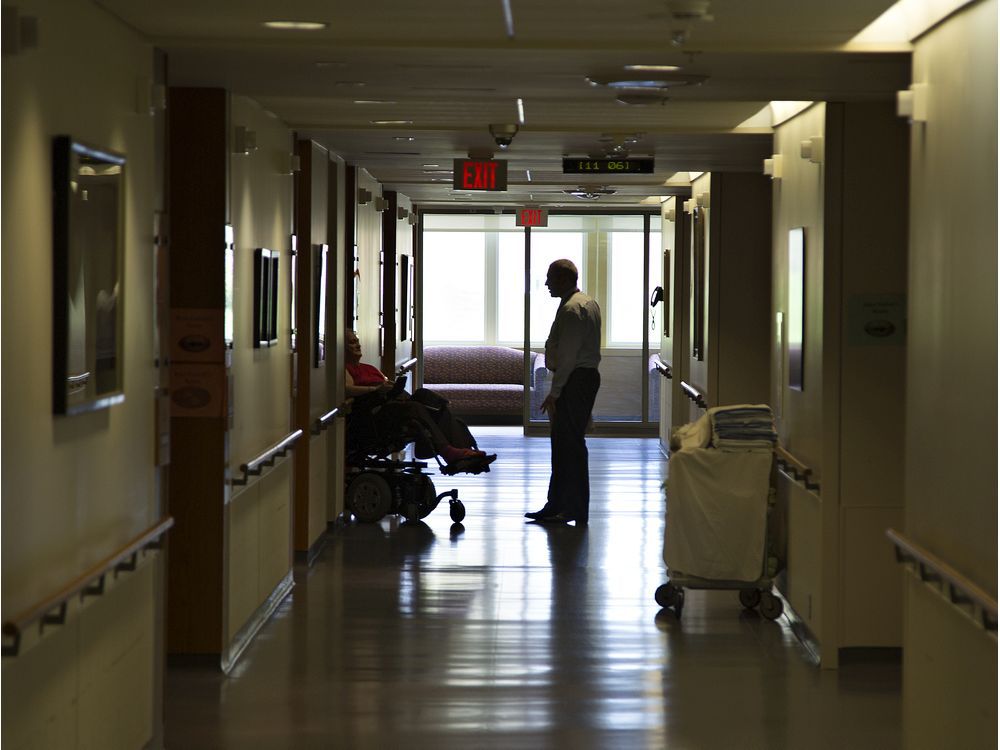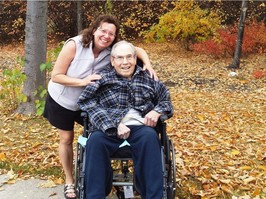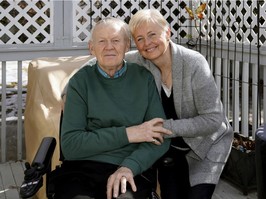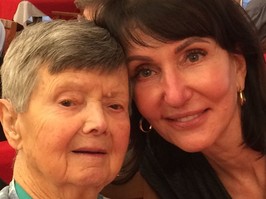the pandemic has exposed many gaping holes in canada’s healthcare system, none more horrifying as the blatant neglect that we have seen in our long-term care homes. but there are also programs and services that achieve just the opposite, focusing on improving the lives of seniors through recreation and psycho-social health.rebecca buttigieg is a graduate of george brown college’s
recreation management in gerontology program, the only one of its kind in the province to specifically focus on recreation and psycho-social health in the elderly. she is also the day program manager at the
second mile club in toronto, a recreation centre specifically for those with disabilities, and those who are 55 or older. the club runs fitness activities, congregate cooking and dining, choirs, art therapy and other programs in order to provide the recreation and socialization that is often lacking the older we get. a big part of the programming is focused on activities that can be tailored to each participant.“whenever you first meet a client or a resident, you do an assessment,” says buttigieg. “you find out what they like and what their dislikes are, and if you can’t find out from the person, you find it out from the person connected to them. [then] you develop programming based on their cognitive level, fitness and interests.”choir is the most popular. “the beautiful thing about choir is that no matter what someone’s cognitive or physical level is, they can still sing.” if some in the group have dementia, she picks an older song, like
‘let me call you sweetheart’ by bing crosby, since older memories are more likely to remain intact. for those who are cognitively fit, they’re able to learn it. together, it’s an emotional and social activity, and one in which the group works as a team.buttigieg also works at second club’s day hospice, which serves those who want to live at home for as long as they’re able. three days of the week, they participate in recreational therapy and social support, part of which includes pet therapy. “it’s about maintaining dignity,” she says. “you can see the light in their face when they touch [the animal].”ashley kwong, also a graduate of george brown, is the owner of
memory and company, a respite club offering short and long-term accommodations for those living with dementia. in 2017, m&c conducted
research alongside york university showing that after 16 weeks of visuomotor training — actions that focus on vision and movement — and m&c day programming, 80 per cent of members showed improvement in cognitive functioning. further, 100 per cent of participants showed an improvement in “thinking-while-moving” tasks.like buttigieg, kwong adapts the programming to the needs of each group member. in cooking, that might mean one member is able to mix all the ingredients together while another may only be able to hold a ball of dough. in gardening, some members may only be able to break the soil. whatever the case, everyone is involved and contributing.aside from the amenities already mentioned, m&c also provides access to a spa with hydrotherapy, a potting shed, library, digital cinema, gym, dressing room and beauty salon. in 2015, a
london school of economics researcher chose m&c as a model for the future of dementia care, writing, “this is very much a place where you’d like to spend a day whether you have dementia or not, which is very much the point.”beyond our basic hierarchy of needs, recreation can also help allay other issues of elderly care. buttigieg cites reduction of agitated behaviours as an example.“if someone’s in bed all the time they’re going to get bed sores. if they’re not moving as much they’re going to gain weight or lose muscle, and then immobility,” says kwong. “the physical problems can add to more work in a care home if certain social programs and activities aren’t provided for, you’re looking at a higher level of care. if you’re not looking at [the care] holistically you’re simply not properly caring for them.”in much the same way that the pandemic has exposed the cracks in canada’s long-term care system, perhaps we should also examine whether we’re best utilizing all kinds of care for our seniors.
nsokic@postmedia.com | @sokic_ don’t miss the latest on covid-19, reopening and life. subscribe to healthing’s daily newsletter covid life
 3 minute read
3 minute read








